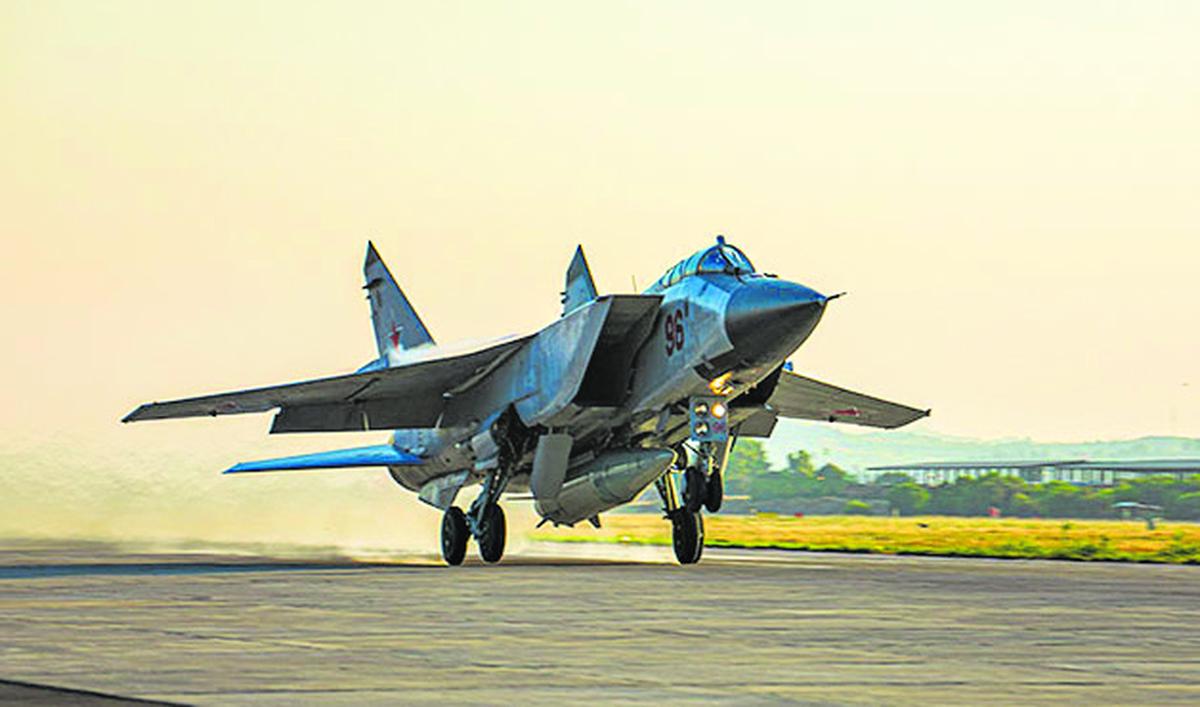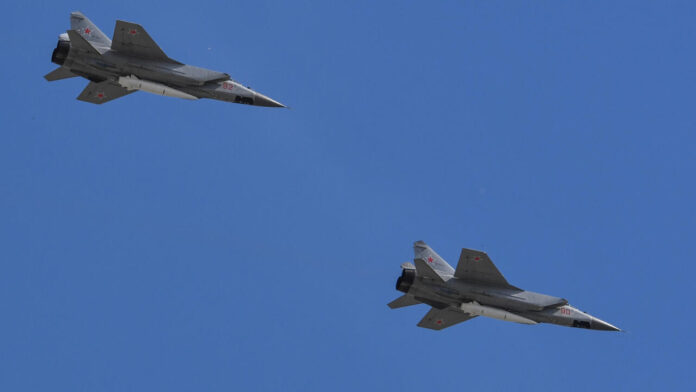NATO fighter jets have intercepted three Russian warplanes after they violated Estonian airspace on Friday, the alliance confirmed. The incident, which Estonia’s government described as an “unprecedentedly brazen provocation,” has heightened already tense relations between Moscow and Western nations.
Three Russian Jets Breach Estonian Airspace
According to Estonia’s foreign ministry, three Russian MiG-31 fighter jets crossed into Estonian territory over the Gulf of Finland without prior clearance. The jets reportedly stayed in Estonian airspace for a total of 12 minutes before being intercepted.
“This was a clear and deliberate violation of Estonia’s sovereignty,” the ministry said in a statement. “Such actions are unacceptable and dangerous.”
NATO spokesperson Allison Hart confirmed that allied aircraft were immediately scrambled to intercept and escort the Russian planes out of the airspace. “This is yet another example of reckless Russian behavior,” Hart said, emphasizing that NATO’s rapid response demonstrates its commitment to defending member states.
Estonia Requests NATO Article 4 Consultations

Following the airspace breach, Estonian Prime Minister Kristen Michal announced that Tallinn will formally request NATO Article 4 consultations, a mechanism that allows member states to call urgent discussions when their territorial integrity or security is under threat.
“This was a deliberate test of NATO’s resolve,” Michal stated. “We must coordinate with our allies to ensure such provocations do not go unanswered.”
Article 4 of the NATO treaty enables all 32 member nations — including the United States, the UK, France, and Germany — to hold emergency consultations and discuss potential collective measures in response to threats.
Growing Pattern of Russian Provocations
Estonian officials have noted that this is the fourth time Russia has violated the country’s airspace in 2025 alone. Foreign Minister Margus Tsahkna condemned the incident, saying:
“Russia’s increasingly aggressive behavior and repeated testing of NATO’s borders must be met with strong political and economic pressure.”
Estonia’s public broadcaster ERR reported that the Russian jets had their transponders switched off, making them more difficult to track by radar. The planes allegedly entered Estonian airspace near Vaindloo Island in the Gulf of Finland, a key monitoring point for the Baltic region.
European Leaders Respond

European Union officials joined Estonia in denouncing the incursion. EU foreign policy chief Kaja Kallas called it “an extremely dangerous provocation,” warning that Russian President Vladimir Putin is “testing the West’s unity.”
“We must not show weakness,” Kallas wrote on X, pledging continued EU support for member states’ defense efforts.
European Commission President Ursula von der Leyen echoed those concerns, vowing that Europe would “respond to every provocation with determination” and continue strengthening NATO’s eastern flank. “As threats escalate, so too will our pressure,” she said.
Similar Incidents in Poland and Romania
This latest episode follows a series of recent airspace violations affecting other NATO members. Last week, Poland’s military reported shooting down at least three Russian drones, with Prime Minister Donald Tusk confirming that 19 drones had entered Polish airspace. Russia’s defense ministry denied any deliberate targeting of Polish territory, suggesting navigation errors may have been to blame.
Romania also reported detecting a Russian drone near its border while two F-16s were patrolling the region during Russian airstrikes on Ukrainian infrastructure along the Danube River. The drone later disappeared from radar without causing damage.
NATO Boosts Defenses in Eastern Europe
In response to these repeated incursions, NATO has pledged to bolster its air defenses and troop presence along its eastern borders. Fighter jets from the UK, France, Germany, and Denmark are currently participating in air policing missions over Poland, with additional deployments planned.
Earlier this week, a French fighter jet was scrambled after reports of another possible Russian drone approaching NATO territory, though the alert was quickly lifted.
Rising Tensions Since 2022
Relations between NATO and Russia have been strained since Moscow launched its full-scale invasion of Ukraine in 2022. Analysts warn that frequent airspace violations risk accidental escalation, potentially dragging NATO into a direct confrontation with Russia.
For now, Estonia and its allies are preparing for more incidents as they reinforce their defenses. “Every provocation must be met with a clear and united response,” Prime Minister Michal said. “Our security depends on it.”
Sources: NDTV

